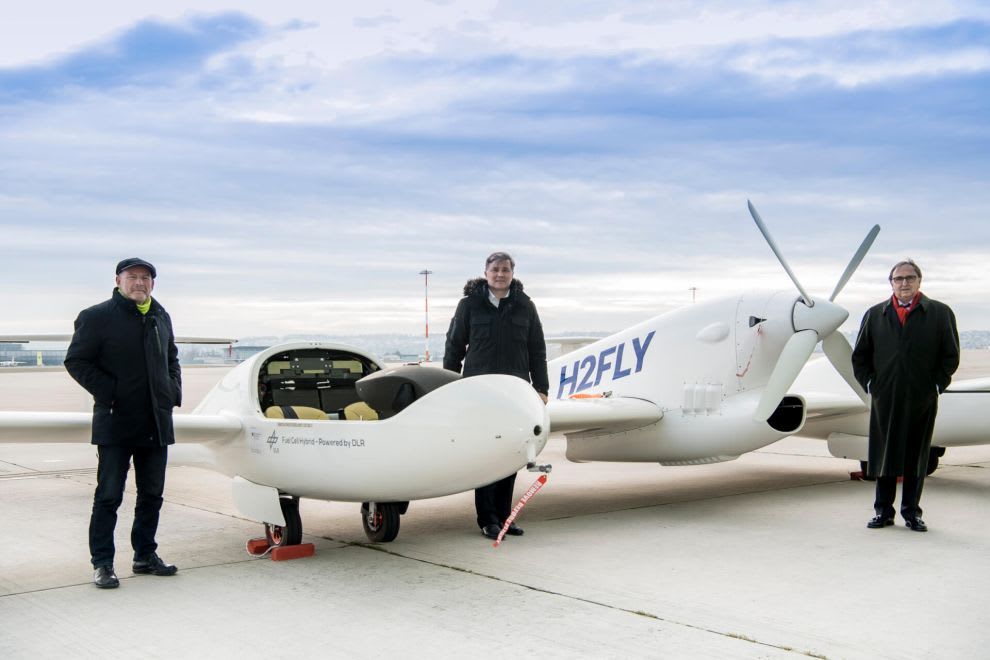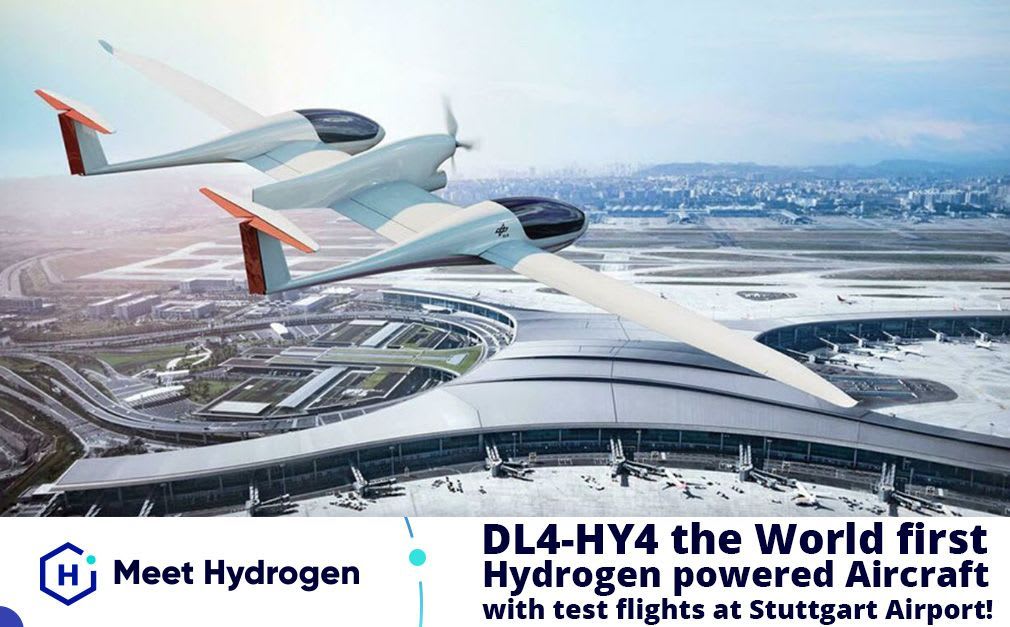DL4-HY4 the first Hydrogen powered Aircraft with test flights at Stuttgart Airport!
Written by Chris Kwacz
The World’s first four seater Hydrogen Fuel Cell Aircrat DL4-HY4 did it’s maiden, test flight at Stuttgarts Airports on 11 of december 2020. The carbon free electric Zero flights is the future of Aviation, and after next several tests this HY4 model will be builded up to 40 passengers flying in regional flights within next ten years. The range of 2000 km in a single flight is a goal to achieve.

Hydrogen fuel cell aircraft Hy4 is ready for the next stage of development – the authorities have now granted permission for next test flights. The research team presented the latest generation of emission-free powertrain technology at Stuttgart Airport where the Federal Minister of Transport Andreas Scheuer said about the reached milestone for climate-friendly passenger flights: “The Hy4 hydrogen aircraft is innovative, quiet and climate-friendly. It shows that carbon-free aviation is already possible and feasible today. This new way of flying has what it takes to change mobility with lasting effect. Germany is a pioneer in this high-tech sector: Hy4 is the world’s first four-seater passenger aircraft that flies fully electric with a fuel cell. This is innovative power made in Germany. It secures jobs and creates value in our country.”
Baden-Württemberg’s Minister of Transport Winfried Hermann praised the achievements of the minds be-hind Hy4: “Air traffic must become more climate-friendly as fast as possible. With the Hy4, the worldwide unique hydrogen fuel cell aircraft, science is presenting a promising technology for emission-free flights. With this expertise, Baden-Württemberg is a pioneer in the field of hydrogen and fuel cell technology in global competition”.
Walter Schoefer, management spokesman of Stuttgart Airport, said: “We are project sponsor since day one. Therefore, we are particularly pleased that Stuttgart Airport is hosting the Hy4 and its team. The work on emission-free flights is making considerable progress with this project. To protect the climate, we must con-tinue to enforce the development of aviation technology and its market launch.” In order to accelerate the transformation to carbon-neutral air traffic, the airport supported research on Hy4 and its predecessors with a total of nearly one million euros. Besides the airport, the Hy4 project receives support by the NOW GmbH, the German Federal Ministry of Transport and Digital Infrastructure, the German Federal Ministry for Eco-nomic Affairs and Energy and the European Commission.
“A project like Hy4 is only feasible if a whole team of specialists works together,” Josef Kallo, professor at the University of Ulm and head of the Hy4 project, explains. “Now we can look at larger systems: in the next decade, first air-taxis for four passengers, then small airplanes for up to 19 persons and finally regional traffic with engines for up to 40 passengers and a range of 2,000 kilometres will be possible”. The University of Ulm, H2FLY GmbH and the German Aerospace Center (DLR) worked on the current powertrain as core partners. They were supported by Cummins from Canada, Pipistrel from Slovenia and Diehl Aerospace.

It was a world premiere, when the Hy4 took off for the first time at its home airport Stuttgart in 2016. Since then, the technology has continued to mature. The sixth generation of the engine has now received a per-mit-to-fly for tests. Under the leadership of H2FLY GmbH, a DLR spin-off, the aircraft completed 32 take-offs, flights and landings in four days in November 2020. It proved its operational flexibility and that refuel-ling with hydrogen is fast and safe.
The electric motor of Hy4 has an output of 120 kilowatts and reaches a top speed of about 200 kilometres per hour. Depending on speed, altitude and payload, a range of between 750 and 1,500 kilometres is possi-ble. A striking feature of the Hy4 is its two fuselages, which are firmly connected to each other via the wing. Each of the two fuselages has room for two passengers. The maximum weight is 1,500 kilograms.
The Hy4 will be stationed at Stuttgart Airport until May 2021. During the coming six months, the low-noise machine will undergo further tests and be visible in the sky above the region.
Source: Stuttgart Airport
#meethydrogen
Chris